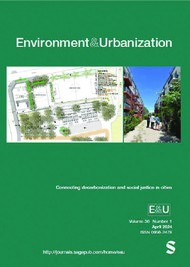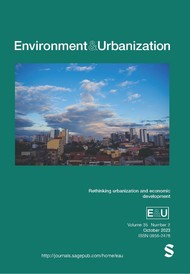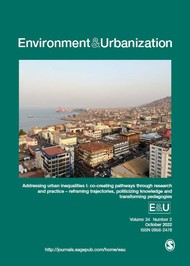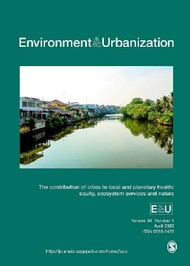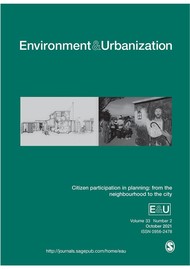Addressing urban inequalities II: discursive and material practices through scale
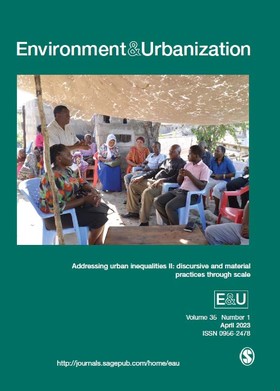
This special issue pairs research from sites in Dar es Salaam, Dhaka, Harare, Lilongwe, Lima and Mumbai with analyses of policies relating to climate-impacted dwellers in urban Bangladesh, to state-provided housing in South Africa and to the framing of ‘slums’ in global policy discourses. Running through each of these papers is a focus on the discursive and material practices at different scales that can reinforce inequalities – but that when co-produced with the aim of fulfilling the rights of urban residents, can also construct and reproduce pathways to urban equality. This is the second part of a double special issue produced in collaboration with the international research programme Knowledge in Action for Urban Equality (KNOW).
The issue also contains four Feedback papers. These include a field note that explores a Chennai fishing community whose hamlet has been engulfed by the growing city, showcasing their resistance to fish vendors being further uprooted and the effectiveness of the local hamlet council in asserting its land claims. A second field note brings to attention the collaborative actions undertaken by waste picker organizations in Brazil during the COVID-19 pandemic and their part in a social movement looking to tackle social and economic inclusion. Two research papers complete the Feedback section – a first examines the role of funds-based mechanisms for addressing urban climate change adaptation and proposes a conceptual framework for evaluating urban responses that focuses on the complexity, uncertainty, vulnerability and transformation needs of urban adaptation; a second, looking at community toilet provision in unserved informal settlements in India, draws attention to a mismatch between the perceptions of state and citizens of sanitation infrastructure.
